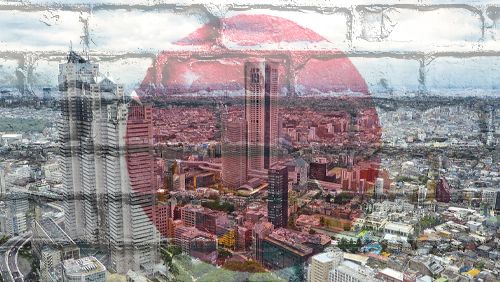If wagers had been placed on Japan’s integrated resort (IR) rollout a couple of years ago, a lot of money would have been lost by now. It was thought that there would be a lot more progress on bringing casinos to the country and the overall framework would have been in place sometime this year. That would have facilitated the launch of the first IRs by 2023-2024, which seemed, at the time, like an attainable goal. However, as often happens, the real world got in the way and completely skewed the forward momentum. Progress is still being made, though, and, eventually, Japan will have its massive casino and entertainment centers. In the meantime, Bay City Ventures is keeping tabs on what’s going on in Japan and the firm’s managing director, Joji Kokuryo, has put together an update on where things stand – and where they’re going, concentrating on two of the main rival targets – Yokohama and Nagasaki.
There is a small handful of locations that have remained at the top of the list of candidates to receive one of the first three IR licenses that will be issued – Osaka, Wakayama, Nagasaki and Yokohama. Out of those four, all but Nagasaki have extended or delayed various steps in the creation of their local processes, with Osaka seemingly needing more time than the rest. Nagasaki is determined to push forward and adhere to its original plan as much as possible, which means that it plans on having an IR partner in place before the end of the year.
Part of the reason most areas haven’t felt the need to rush is because of the lack of a national policy to guide them. Explains Kokuryo, “As of today, there are no changes to the current national timeline and the local governments must act accordingly with their own schedules. It is clear that candidate sites all have the July 2021 submission deadline in their minds in recent statements about their own timelines. It is important to note that every candidate site is in very different stages of their IR partner selection process, and the effect of a national timeline change also differs for each local government.”
There are additional reasons each location is dragging its feet, as well. For Yokohama, it’s because an effort is underway to recall Mayor Fumiko Hayashi, as well as the concern that there is already too much commercial tourism development underway. The recall might be difficult to achieve, but Yokohama has a number of facilities either complete or near completion that could call into question its ability to support another venue. It already has the Pacifico Yokohama North MICE (meetings, incentives, conferences, exhibitions) facility, which just underwent an expansion, the Yokohama Budokan cultural sports facility, the United Arena and the K-Arena. Another venue may be too much.
